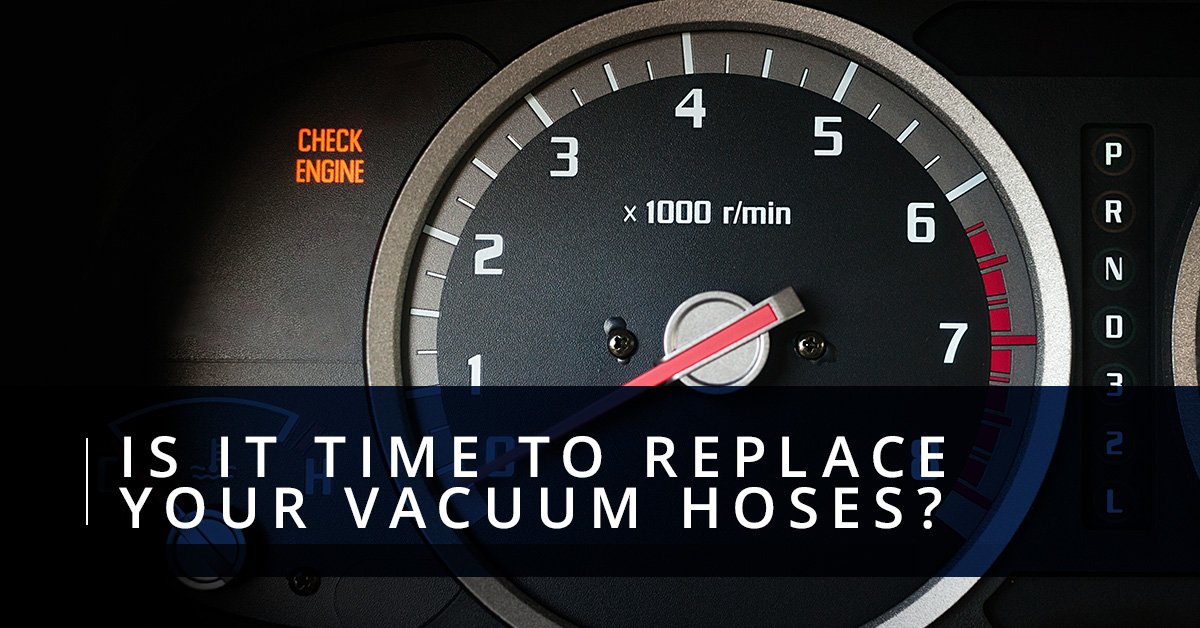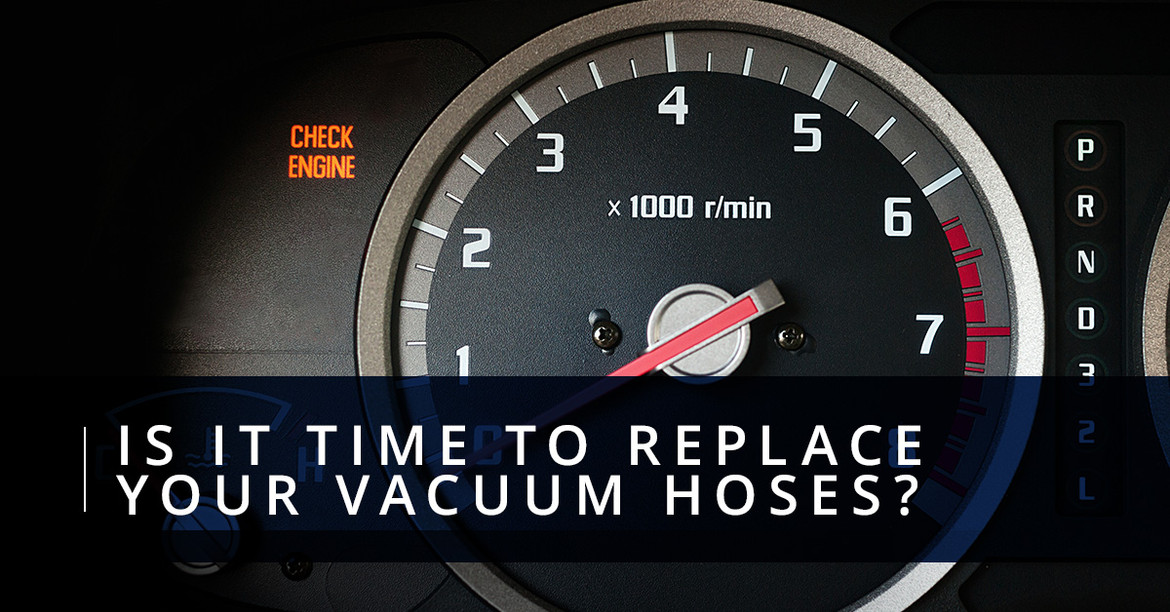
How do you know when the time comes to replace your vehicle’s vacuum hoses?
Vacuum hoses connect to different supply points on your vehicle’s engine, and they are exposed to many things that can degrade them over time, including dirt, debris and other gunk, as well as extreme heat. Failing or damaged vacuum hoses can cause a whole host of issues in your vehicle, and if you can catch and replace a failing vacuum hose early on, you can avoid a huge headache down the road. But, you can’t catch it if you don’t know the signs to watch for! Here are a few signs that indicate a disconnected, leaking or otherwise broken vacuum hose:
#1. The Check Engine light is on.
Most of today’s vehicles are monitored by an engine control unit (ECU) — a computer that monitors your vehicle and assists in everyday functions. ECUs have many different sensors that are connected to different components throughout the vehicle. If a vacuum hose starts leaking or becomes broken, the sensor will pick on the increase or decrease in pressure and trigger the Check Engine light. Check Engine lights can indicate many different problems, so you’ll need to either purchase a code reader or take your vehicle to a mechanic to determine what set off the warning.
#2. The engine won’t start or quickly loses its power.

If a leak in a vacuum hose is severe enough, it can prevent the vehicle from firing up at all or cause the motor to shut off while you’re on the road. Most vehicles, even those without ECUs, have sensors in the combustion engine that monitor the vacuum pressure. When the pressure gets too high, it can cause the cylinder head hardware to break, the head gasket to get pushed out or even a detonation inside the engine. This is a critical warning system, as it helps to prevent severe engine damage. If your vehicle suddenly loses power when you’re driving, attempt to start it again, and if that doesn’t work, check the vacuum hoses.
#3. The engine doesn’t run smoothly.
Sometimes, leaking or failing vacuum hoses won’t prevent a vehicle from starting, but they can make the engine run much more roughly. You can usually spot this with by an inconsistent RPM idle or by a misfiring engine. By this time, the Check Engine light should also be on, but if there is a problem with the ECU’s sensors, your vehicle may not give you the warning you need. It’s for this reason that any time you notice that your engine is running roughly when you accelerate, decelerate or idle your vehicle, you should visit your mechanic or check your vacuum hoses.
#4. The engine backfires.
In most cases, when an engine backfires, it’s usually a sign that the electronic timing system is malfunctioning. This system is responsible for coordinating the precise timing that each spark plug fires. However, engine backfires can also be caused by increased pressure in the combustion chamber, which the sensors and vacuum hoses regulate.
How to find the damage.
Once you’ve established the fact that there’s a problem with your vacuum hoses, it’s now time to take steps to find the damaged hose. You may be able to spot the leak or damage by simply getting a good look at your hoses, watching for any cracked hose fittings, or damaged or loose hoses. If the damage isn’t obvious enough to visually see it, you might want to consider using a smoke machine to smoke it out. When smoke is pushed into the manifold, you should see it seep out of the leaking or damaged hose.
When the time come to replace your vacuum hoses, choose silicone vacuum hoses.
Vacuum hoses are small, inexpensive parts of your vehicle, but a failing vacuum hose can cause a lot of problems. If you’ve noticed any of the signs of damage to your vacuum hose, don’t ignore them! Instead, take a proactive approach and replace them with silicone vacuum hoses at the first sign of trouble. There are many benefits to upgrading your vacuum hoses to silicone, and in our next blog, we’ll cover a few of them. In the meantime, turn to Flex Technologies for the silicone vacuum hoses you need. We offer silicone hoses in every imaginable shape, style and color, and we can even customize hoses to fit your specific needs.
 Default Currency
Default Currency
 Mexican Pesos
Mexican Pesos
 Canadian Dollar
Canadian Dollar



